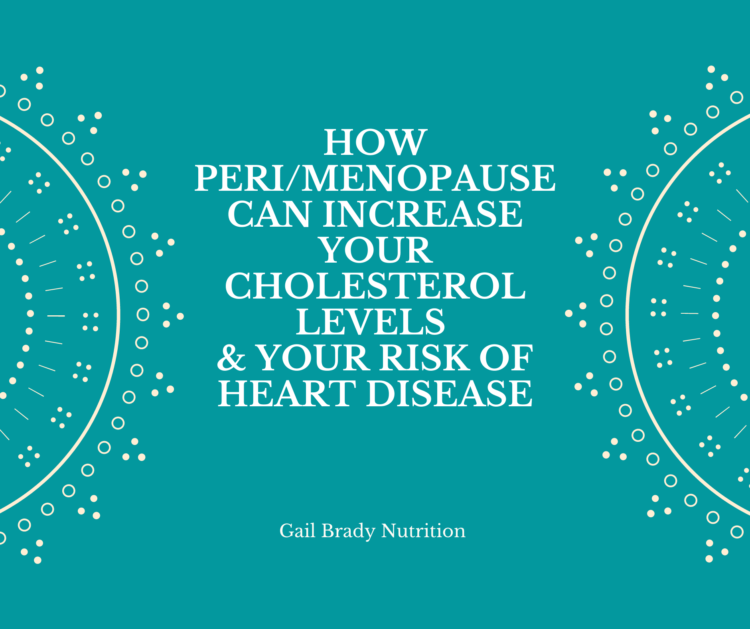HOW PERI/MENOPAUSE CAN INCREASE YOUR CHOLESTEROL LEVELS & RISK OF HEART DISEASE
Prior to menopause, the risk of heart disease for women is lower than for a man. However, following menopause, the risk is similar and sometimes even a little higher for women.
WHY THE RISK INCREASES
Oestrogen has many effects on the body including supporting heart health and protecting your arteries from a build-up of plaque.
During perimenopause as oestrogen levels start to fluctuate and decline the risk of cardiovascular disease can start to increase.
In fact, following menopause, heart disease becomes one of the main causes of death for women.
For most people, diet and lifestyle interventions can help to lower your risk. However, there are a few inherited conditions that require medical supervision.
CHOLESTEROL
Blood tests can start to show elevations in cholesterol as oestrogen levels fall in peri-menopause.
A decrease in high-density lipoprotein (HDL) cholesterol sometimes referred to as the “good” cholesterol is often seen. This is the type of cholesterol that takes excess cholesterol out of your blood and transports it to your liver to be broken down and excreted from your body.
With less HDL cholesterol, levels of a different type of cholesterol (low-density lipoprotein (LDL))can increase and over time cause a narrowing of the arteries through a build-up of plaque. This can eventually result in a heart attack or stroke.
What’s important to know is that this can happen over a relatively long period of time and there are many things that you can do to support your heart health.
WHAT YOU CAN DO TO PROTECT YOUR HEART HEALTH
-
Follow a Mediterranean style diet including oily fish, modest amounts of lean meat and poultry, olives and extra virgin olive oil, nuts and seeds, a diverse range of vegetables and some fruits, some whole grains, lentils and beans (kidney beans, chickpeas) can be helpful. Phytoestrogens from foods such as flax seeds may help to lower cholesterol levels.
-
Avoid junk food, vegetable oils and too much saturated fat (that’s fat that comes from animal sources).
-
Manage your blood sugar and insulin levels by eating foods low in sugar or foods which can quickly be turned into sugar such as cakes, biscuits, white bread and other processed foods.
-
Quit smoking – this can be tough but there are so many good reasons to do this. There are lots of ways to approach this including hypnotherapy, nicotine patches or programmes specifically or this.
-
Exercise regularly and avoid sitting for long periods of time. This helps to support balanced blood sugar, weight and lower blood pressure
TESTS
From your forties onwards you should consult your health care provider for tests to monitor heart disease risks.
Get your vitamin D levels checked too. There is a growing body of research associating the benefits of vitamin D with heart health.
